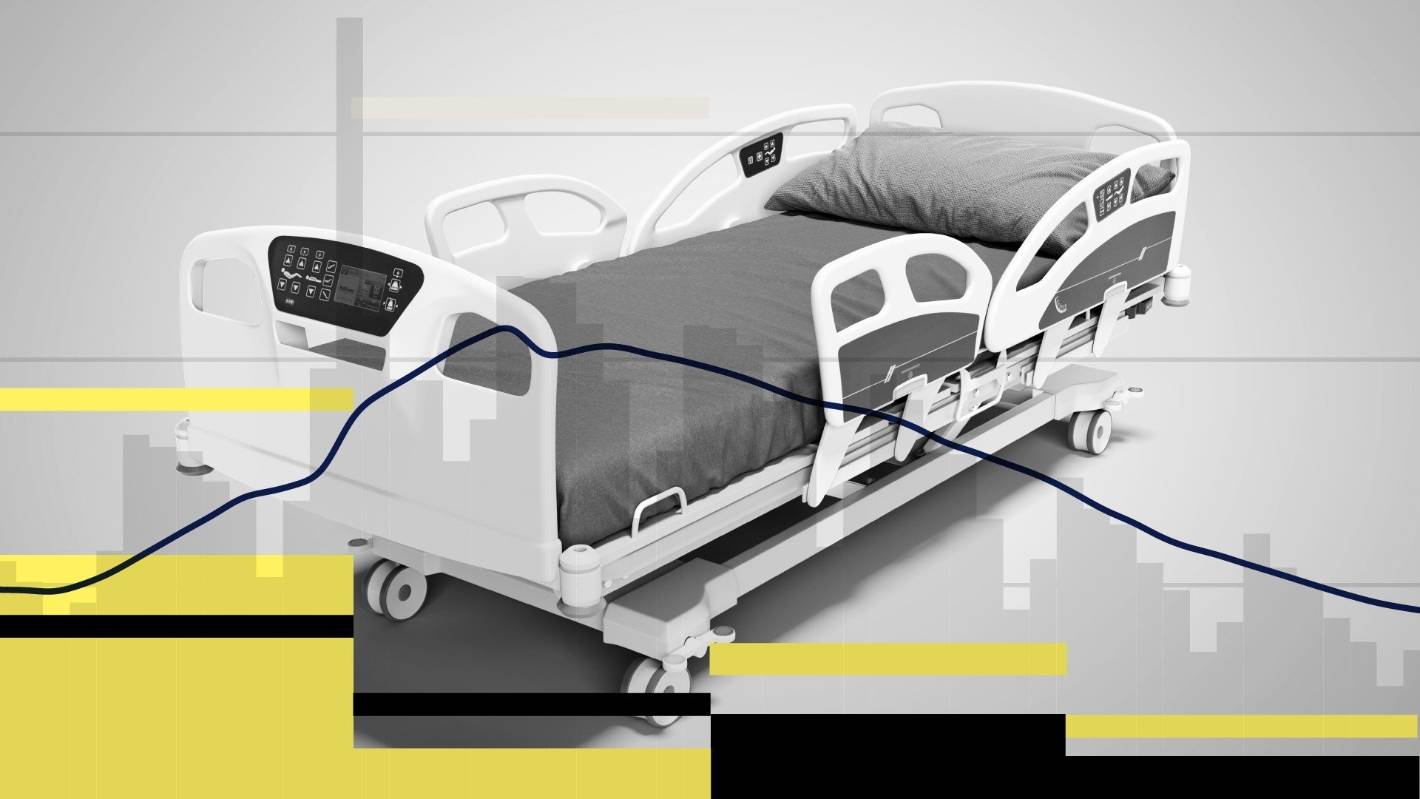- Covid-19 and flu cases requiring hospital care has put pressure on Whangārei Hospital.
- One patient waited 31 hours in ED to be either admitted or discharged.
- ED numbers peaked in June, while Covid-19 hospitalisations reduce week by week.
One of the country’s most under-pressure hospitals believes the peak of Covid-19, flu and other winter illnesses is over, easing pressure on the health system.
Whangārei Hospital has battled with capacity issues since February, before the Omicron Covid-19 surge hit.
It postponed all elective surgeries that required a bed overnight and asked whānau members to volunteer showering their loved ones.
READ MORE:
* Covid-19: Strained Northland hospitals ask whānau to help patients shower
* Covid-19: Northland and Canterbury restrict hospital visitors as infections rise
* Northland hospital patients ‘being treated in corridors, chairs’ as flu and Covid-19 hit
* Covid-19: Whangārei hospital at capacity with Omicron surge yet to hit
The hospital’s emergency department had patients being treated in chairs and corridors and triaged in tents.
One patient waited 31 hours in ED to be either admitted or discharged, a spokesperson for Te Whatu Ora – Health New Zealand Te Tai Tokerau said.
Nearly a quarter of patients were waiting longer than the recommended six hours between March 1 and August 15.
Ella Bates-Hermans/Stuff
One patient waited 31 hours in Whangārei Hospital’s ED to be treated or discharged at the peak of the crisis. (File photo)
But the average ED presentations in Whangārei had dropped from 124 a day in June, to 116 in August, said interim district director Tracey Schiebli.
While the hospital is not yet back to normal, it is prioritising elective surgery for patients who are urgent, semi-urgent and long-waiting, as well as performing routine day surgeries.
Outpatient appointments at the hospital depend on staff availability on the day, with a higher-than-normal rate of sickness affecting staff and their whānau, Schiebli said.
Whangārei ED doctor Dr Gary Payinda agreed the department was past the “mayhem” which hit about six weeks ago.
“We had this amazing spike of three years’ worth of influenza infections coming at a peak all at once – it was something tremendous to behold – along with Covid.”
Supplied
Dr Gary Payinda says Whangārei ED was mayhem, and the hospital still has a grave problem with staff off sick.
While hospital admissions for Covid-19 are still adding strain on the system, the numbers are falling from last week – when there were 30 in Northland and 536 nationwide – to 12 in Northland and 432 nationwide on Monday.
But Payinda said the hospital was still struggling with both nurses and doctors being off, either because they were sick or caring for sick family members.
“We still have very grave problems filling our roster, both for doctors and nurses … It is an ongoing drama how many extra shifts we’re doing now; it’s not at a sustainable level.”
Te Whatu Ora Te Tai Tokerau would not say how many clinical staff were off sick across Northland, only to say it was “considerably lower” than the 20 nurse vacancies Stuff saw on one roster.
Supplied
DonnaMaree Austin waited 14 years for a hysterectomy at Whangārei Hospital.
One patient, DonnaMaree Austin, had a hysterectomy in Whangārei Hospital on July 13, after Stuff covered her plight of her surgery being constantly delayed.
While she was pleased to have the surgery after years of delay, her aftercare reflected a strained hospital, as she had to wait six hours for nurses to change her bed and clothes, and pain medications were not dispensed regularly, she said.
Austin also suffered a postoperative infection which saw her readmitted three weeks after surgery, but she said her treatment was much better then.
The health system faced a set of unprecedented challenges this winter with Covid-19 cases, flu and other winter illnesses stretching capacity, said a Te Whatu Ora Te Tai Tokerau spokesperson.
People are still being asked to help out by seeking the right care from the right service – including using GPs, pharmacies and Healthline for routine care and advice.
“Significantly, we would like to assure the public that if they or their loved ones need urgent hospital-level care, they will receive it,” the spokesperson said.
Northland hospitals will also continue to use family or whānau members to help with advocacy, support and practical assistance with the likes of meals, walking or showering.
Chief nurse Maree Sheard said the Kaitiaki Partners in Care model worked extremely well – for patients, their whānau and hospital ward staff – although she could not say how often it was used.
Meanwhile, two wards in the hospital, which closed to visitors to stop the spread of Covid-19 and other infections, are set to allow visitors again.
Ward 15, a rehabilitation and stroke ward, reopened to visitors on Friday, while ward 14, a medical ward, will allow visitors from Tuesday morning.




